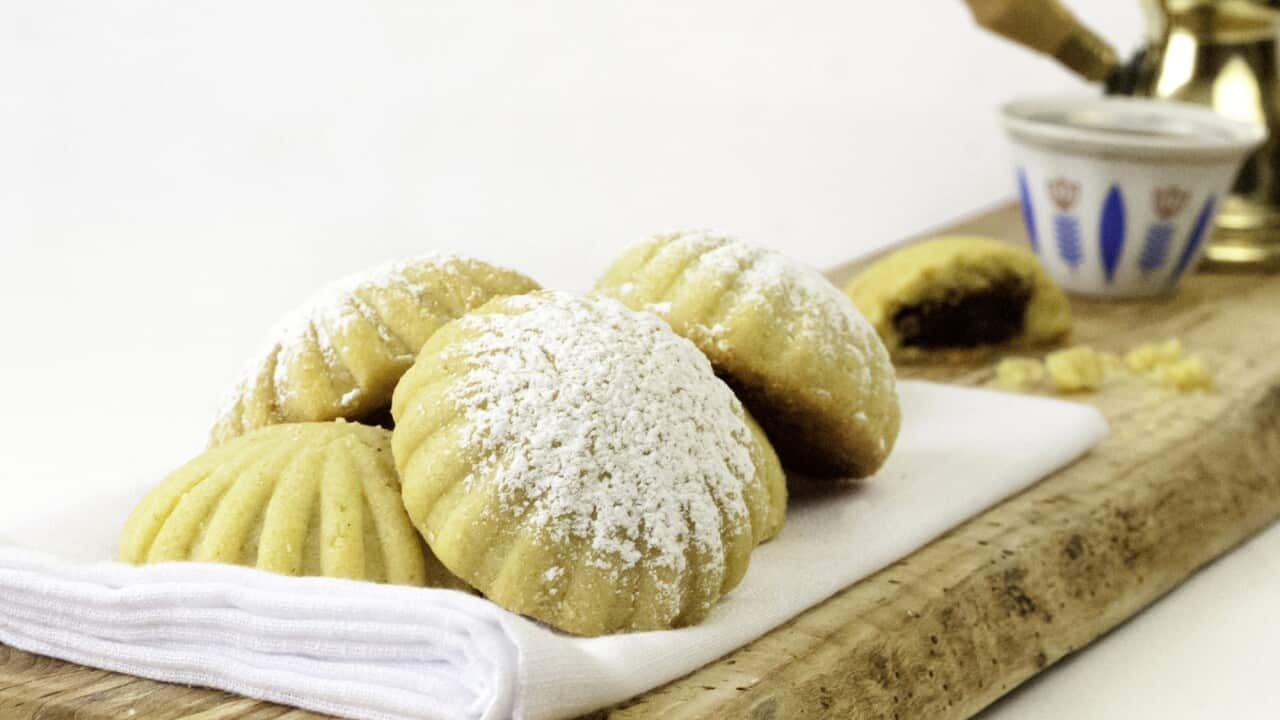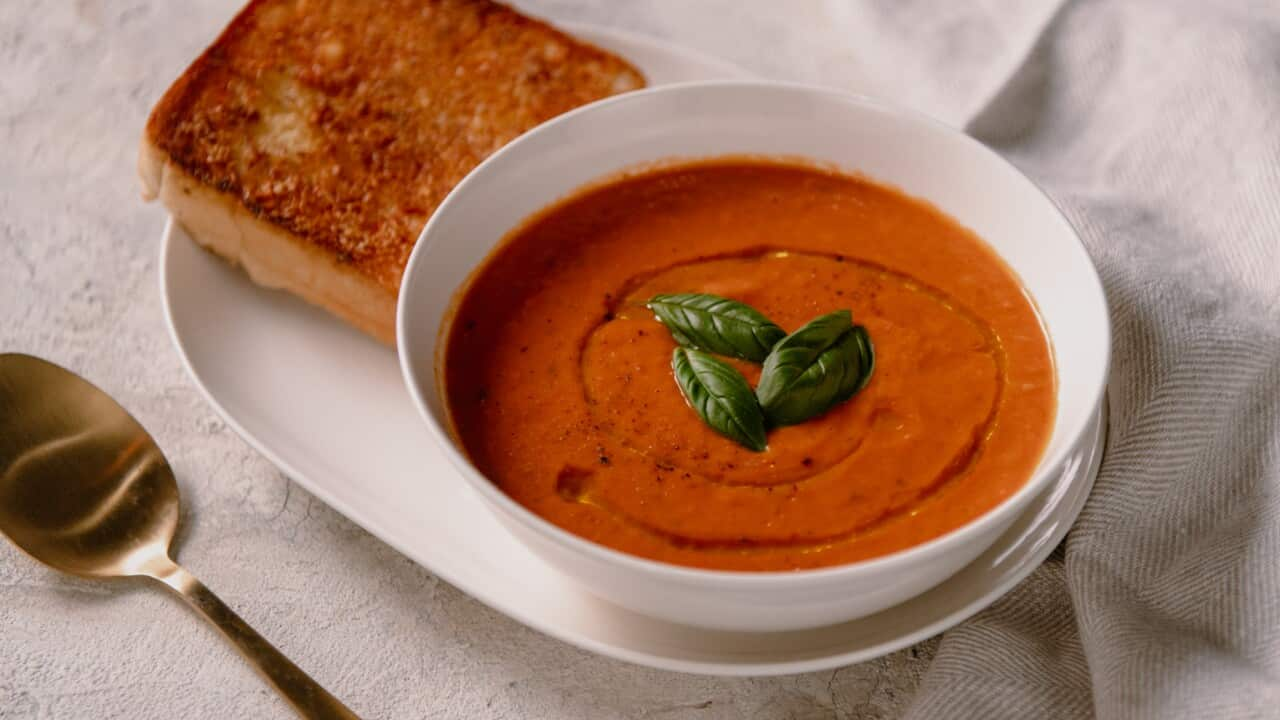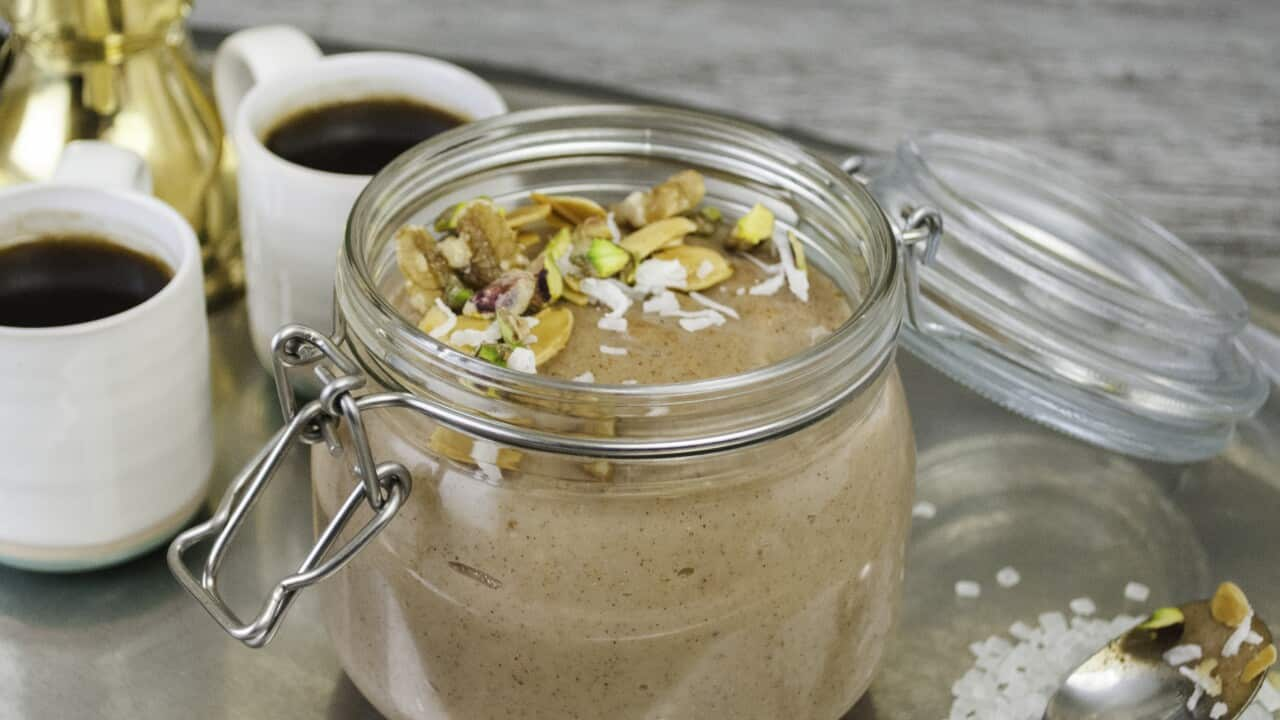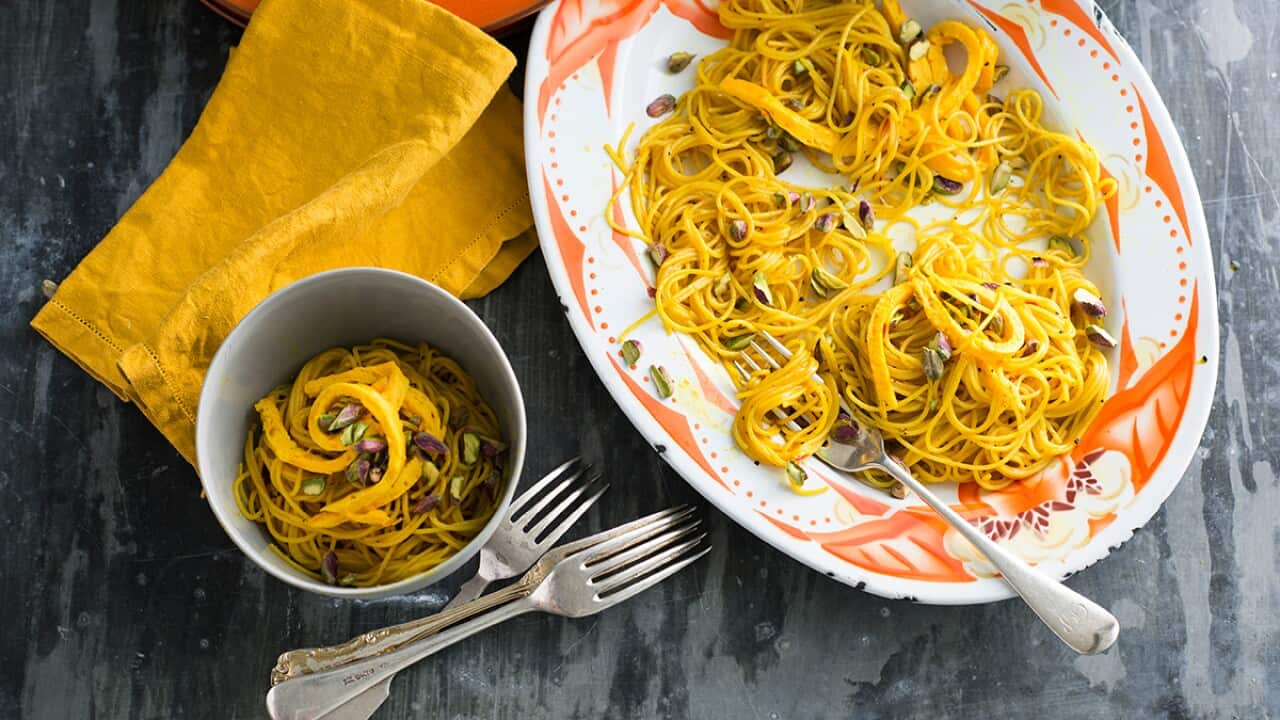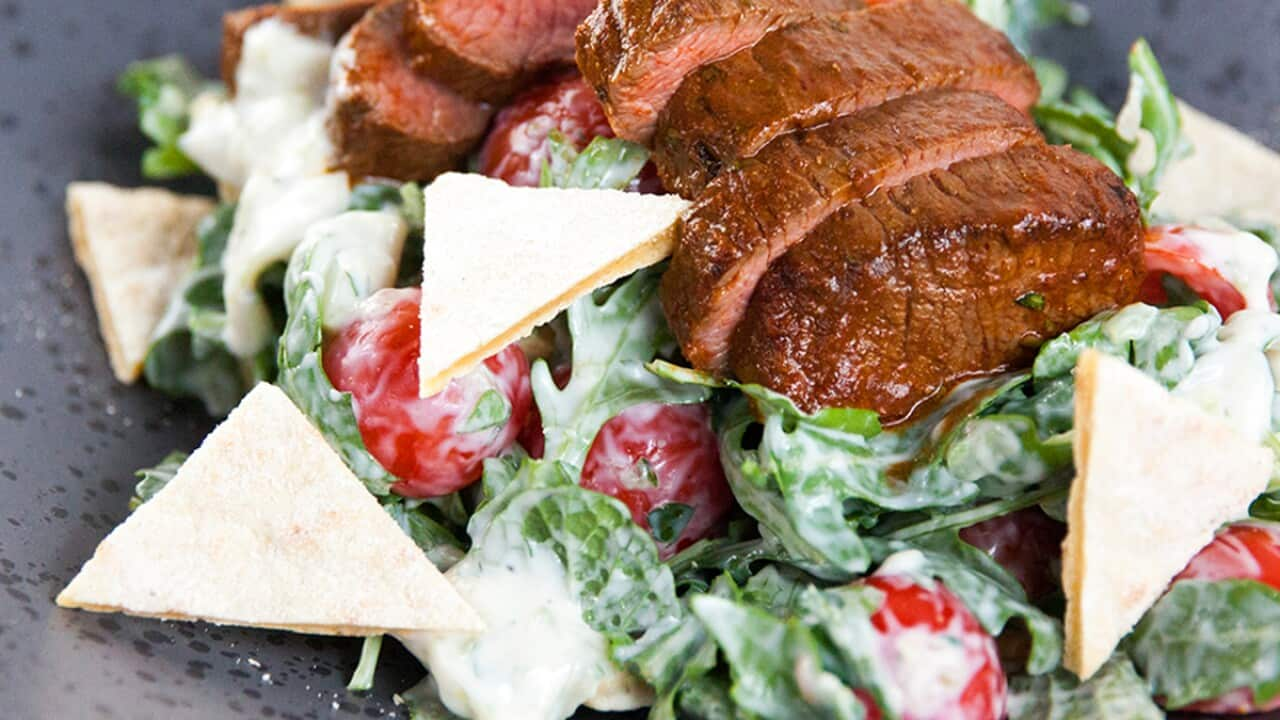Stream free On Demand

The Cook Up with Adam Liaw
series • cooking
PG
series • cooking
PG
Across Australia Muslim friends and family are observing Ramadan. It's the most important month on the Islamic calendar and one of prayer, community, reflection and, of course, fasting.
Preparing food for Ramadan can be a juggle, especially when you are fasting daily between sunrise and sunset. For , it's all a matter of careful planning. Her tips for staying organised all month:
- Make a meal plan for the week and ensure you have all the ingredients. Lina usually makes a meal plan on the weekend to grocery shop for any ingredients she needs before Monday.
- If you have room to store food, Lina suggests pre-prepping as many ingredients as you can. For example, she chops vegetables and marinates meats in advance.
- Lina often cooks dishes like soups and stews in larger batches. She then freezes portions to reheat throughout the month.
- Make use of slow cookers and pressure cookers. They can save time and effort, especially for dishes that require long cooking times.
Suhoor at sunrise
While it can be tempting to oversleep and miss suhoor, it's an important meal that sets you up for a long day of fasting... so make it count. Lina's family loves ba'at which they warm in the microwave and eat with labneh.

"Dipped in some labneh and a hot cuppa, ba'at is the perfect quick eat," says Lina. Source: Supplied
Other filling, nourishing suhoor recipes include and egg sandwiches, which Lina premakes and keeps in the fridge for her family to grab and reheat.
Iftar at sunset
Iftar is the meal that breaks the fast at sunset. This usually begins with a plain offering. "Sweet tea, freshly baked bread, cheese, dates, walnuts … they usually break their fast with these," says . People aren't fond of tea, or some who don’t believe in tea during iftar, will simply drink boiled water in glass cups, she says.
DATE THIS

Date bread
The dates are "a must", notes Lina. "[They are] traditional for breaking the fast, [because] they provide a quick source of natural sugars to replenish energy levels."
A deliciously soupy start
As well as offering dates, Lina's family always start their meal with soup, which is comforting after a day of fasting. Soup is also simple to batch-prep and freeze, so you always have some on hand.
A particular favourite of Lina's is nourishing lentil soup, which is made from pantry staples.
Shared dishes and plenty to go around
"[Ramadan] is not only about starting fast or breaking fast it’s [also] about the joy of communication with loved ones," says Mahshid. "It’s very common to invite friends or family members together to enjoy iftar together."
BREAK THE FAST
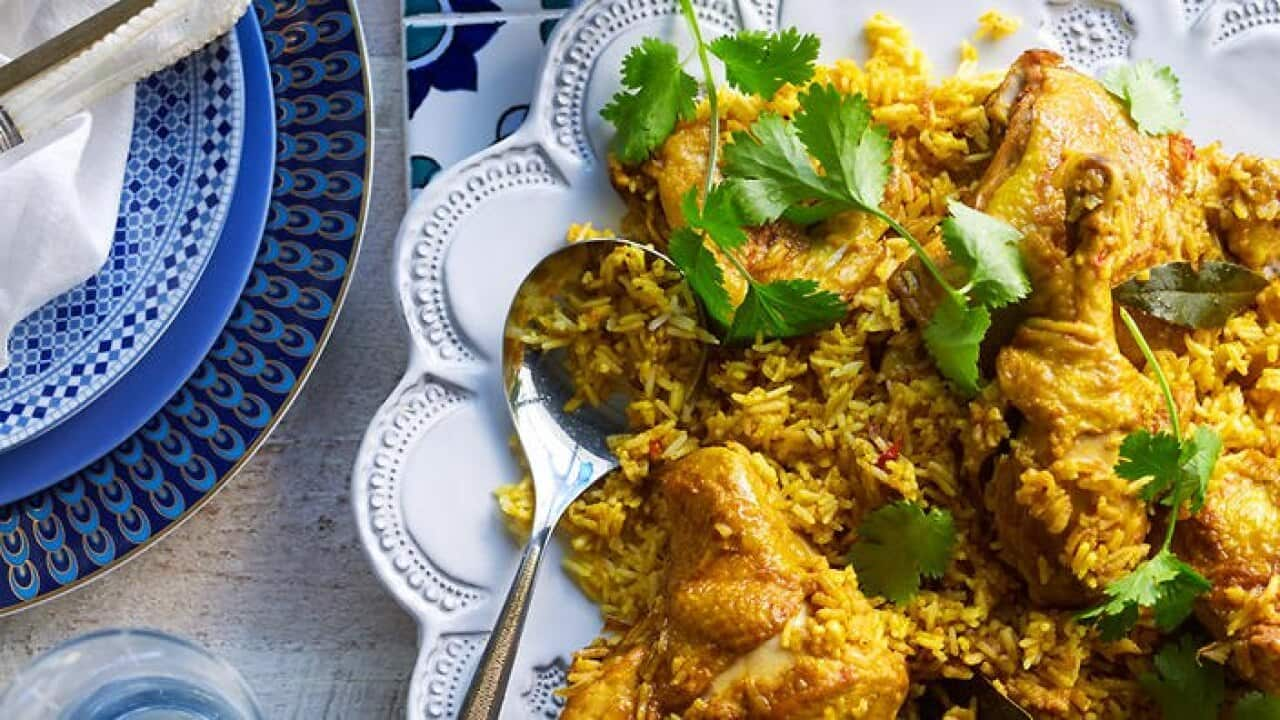
7 Ramadan recipes to cure fasting fatigue
Indeed, providing iftar is said to bring many blessings so far that reason, dishes are made for sharing: Soups, stews or big plates of grilled meats served with vegetables and flatbreads.

This chicken and prune tagine served with pistachio couscous is a one-dish wonder that is on the table in no time.
Make-ahead recipes can also make meals quicker to serve.

Kofta-stuffed bullhorn peppers are a great make-ahead and reheat meal. Credit: Maja Smend
Everybody's favourite any time of day

Shakshuka is the perfect meal for breakfast, lunch, dinner, any time! This variant is specifically for summer into autumn – with a focus on tomato and spice. Credit: Kitti Gould
Well-earned sweets

Sticky, sweet halva is perfect with a strong cup of Turkish coffee. Credit: Tammi Kwok
"It usually doesn't matter if the iftar is big or small, [there is] always some kind of sweets made specifically for this time of the year," says Mahshid. "Halva, rice pudding, saffron rice pudding and sweets made with dates are very common."

Labne with spiced fruits in brown sugar is a simple make-ahead dessert that brims with flavours of the Middle East. Credit: Kitti Gould
SWEETS FOR MORNING OR NIGHT

Farah's mum's Bosnian flour halva
Keep it healthy
The important thing is to choose dishes that energise, satiate and nourish throughout Ramadan.
That means choosing the best-quality ingredients you can afford, drinking plenty of water and eating an abundance of whole fruits and vegetables. Eat right when you can and you should find it much easier during fasting.



